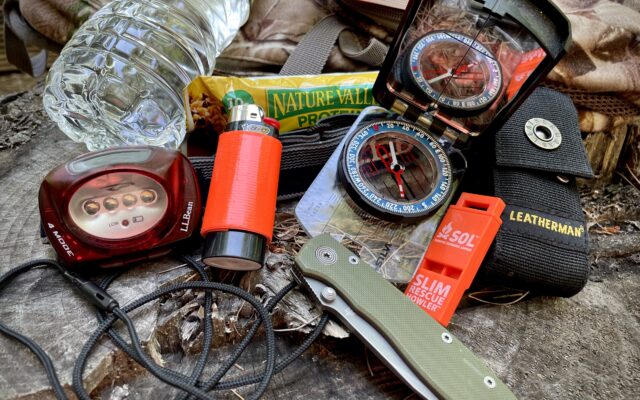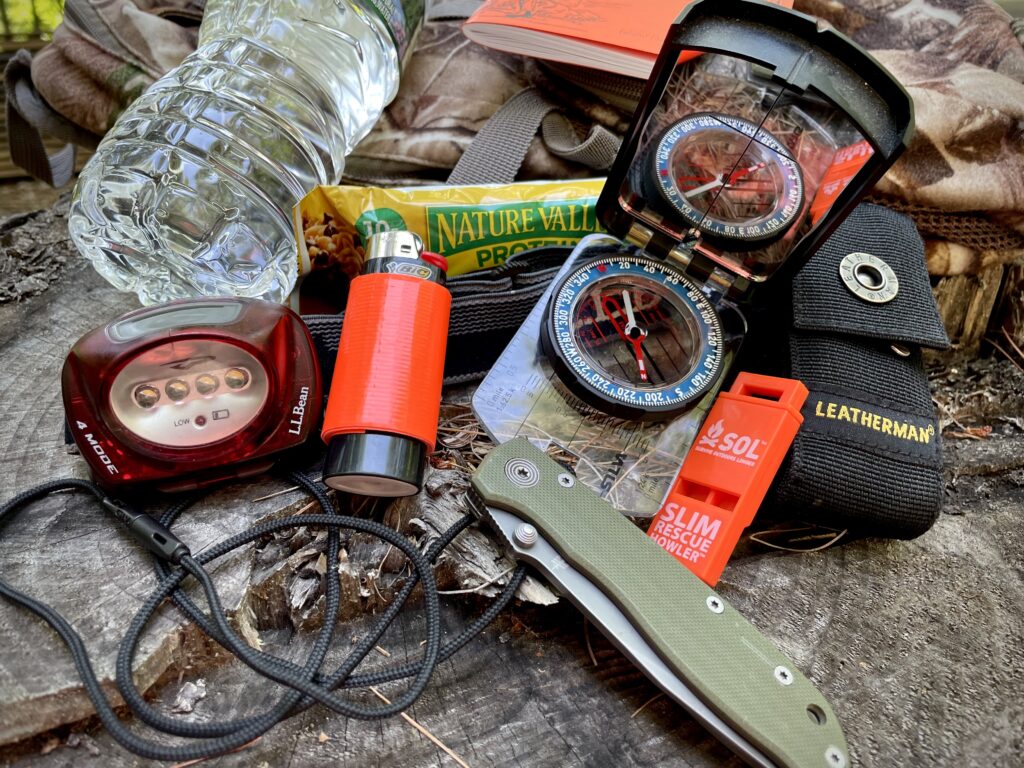
Bring these things to make your outdoors experience safe
By Chris Sargent
Those who have spent any significant time outdoors know the feeling. There’s a slight bit of tension in the stomach while the heart starts to beat faster and faster.
Normal breaths become deeper and quicker as the body enters its fight or flight reflex. Panic sets in, and eyes rapidly scan for a way out. Suddenly, you can’t place a certain tree, hillside or mountain off in the distance.
You scramble to make sense of an unfamiliar landscape, convincing yourself that your truck, trail or camp must be right over that way. Or maybe it’s back that other way. In that moment, the world around you becomes deafeningly silent, and you’ve never felt more alone.
Are you prepared?
Getting turned around or momentarily confused in the outdoors is typically just a harmless hiccup, and the situation resolves itself very quickly. Most people can string together a few rational thoughts, problem solve, get their bearings and go about their way.
For the avid outdoorsman, it’s a perfectly normal test of woodsmanship. I like to roam, and routinely find myself pausing in order to reassess my location.

NEEDED ITEMS — Chris Sargent suggests carrying these few small, simple items, which can easily be stored in pockets, or a pack during every outdoors adventure as a basic level of preparedness.
These days, the task is made fairly easy by the tremendous amount of technology available, and a simple glance at a GPS, or smartphone usually solves the problem.
But what if technology isn’t an option? What if you can’t think your way out? What if you’re truly lost, seriously injured or both? What do you have in your pockets or pack that can help get you through until help arrives, or until you’re able to self-rescue?
For years, the Maine Department of Inland Fisheries and Wildlife distributed a florescent orange, pocket-sized survival guide titled “You alone in the Maine Woods — The lost hunter’s guide.”
The booklet includes tips, tricks and information geared toward preventing, addressing and navigating when you’ve become lost in the woods, as well as other outdoor emergencies.
It’s a fun little book to read, and a great reference to toss into a pack, but it concentrates heavily on surviving catastrophic events in the deep woods of Maine, and is somewhat dated.
At its essence, it promotes being prepared, stresses the importance of having a solid outdoor knowledge base and encourages carrying appropriate equipment.
Regardless of whether it’s a deep woods deer tracking adventure in the snow, turkey hunting on the back 40, a short morning hike, canoeing the Allagash Wilderness Waterway or paddling a local stream, there are a few basic items you should always have with you, in addition to activity-specific gear.
First and foremost, is a good quality knife or multitool, but preferably both. Second, is a compass and/or a GPS unit of some sort, as well as the knowledge needed to use them proficiently.
Third, is a fire-starting tool of some sort. I prefer a Bic lighter wrapped with a couple feet of fluorescent orange duct tape, which has countless uses, including tinder. Fourth is a quality flashlight or preferably a headlamp.
Fifth is an adequate supply of water, or at least a water purification tool such as a filter or Steripen. Sixth is a small, plastic emergency whistle. And finally, at least a small amount of simple food such as a granola bar, candy, trail mix or whatever you prefer, as long as it includes sugar and/or protein.
All these items are very simple to carry in pockets, or a small pack, and will help keep you safe, comfortable, and alive in most situations, as long as you have a basic understanding of how to appropriately utilize them during an emergency.
That’s still not enough. It may seem silly, but I cannot stress enough how crucial it is to simply tell someone where you’re going, what you’re doing and when you plan to return. It’s a simple concept that we all understand, and know we should follow, but regularly ignore.
Even if it’s as simple as heading down back to chase a spring gobbler, I let my girlfriend Emily know where I’m going, and about how long I plan to be gone. I’m not likely to get lost or injured, but nothing is certain in the outdoors. It’s cheap insurance, so just do it.
Be aware of your own abilities, experience, limitations and recreate accordingly. If you ever find yourself in a bad situation, remember to stay put unless you absolutely must move, make yourself visible, remain calm and wait for help.
While becoming lost, seriously injured or otherwise ending up in some sort of serious emergency in the Maine outdoors may be unlikely, it happens to dozens of people every year.
The unexpected can happen incredibly fast, regardless of experience level. Leave nothing to chance, and always be prepared.